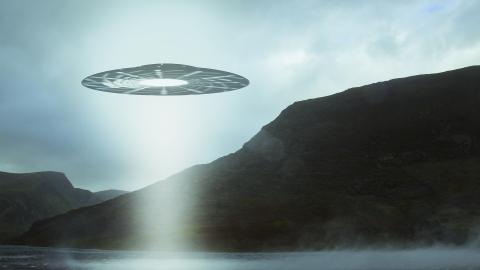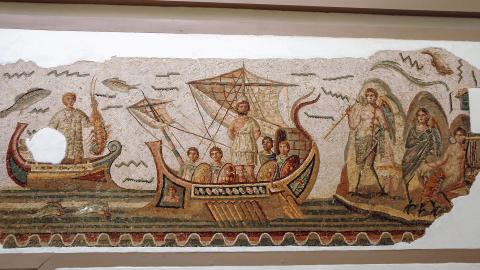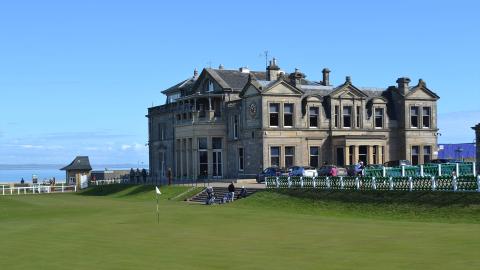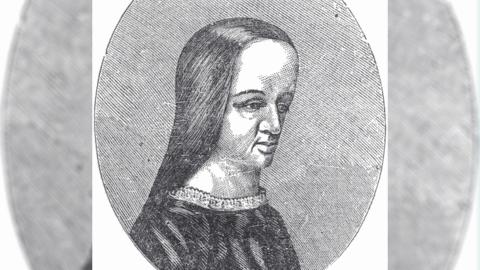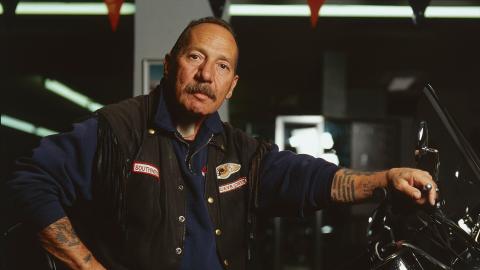Historian Doris Kearns-Goodwin on George Washington
One of the difficulties of telling the story of Washington is that for many Americans, he is a remote figure, more myth than man
Washington, Sky HISTORY’s new three-part docu-drama explores the myth, the legend and the truth behind one of the most influential men in American history, George Washington.
The series is narrated by Emmy award-winning actor Jeff Daniels and executive produced by world-renowned presidential historian Doris Kearns Goodwin. Sky HISTORY spoke to Goodwin, the Pulitzer Prize winning author about producing the series and about the life of this American icon.
One of the difficulties of telling the story of Washington is that for many Americans, he is a remote figure, more myth than man: a statue rather than a person, as one of the contributors puts it. 'It's hard to see him as a human being,' admits Doris Kearns Goodwin, 'So we started the series when he was young, on his first mission for the King (King George II). And you see him confused about what he's supposed to be doing, not being a good leader of men, having to figure out that he screwed up and learning, over time how to become a better leader. And I think that's the way you can humanize somebody, to watch them grow in the course of their career.'
Washington's transformation from ambitious young man to the father of a nation is remarkable. 'You see his ambition, but it grows to something greater than it was at the beginning. What started as a self-seeking ambition to be recognized by the British becomes a larger ambition to really be involved in this incredible momentum that's going on to create a new country separate from anyone,' Goodwin explains.
'Once he wins the revolution he could have just taken over the country as most revolutionary leaders do. He could have been a king. But he chooses not to. He goes home, resigns his commission, and then is called back to be President.' As America's first President he set the tone for future leaders. 'He makes the choice of what kind of President he's going to be. Not a regal king but a democratic king in a certain sense. And then after two terms decides to go home.'
It must have taken immense strength of character to step away from the Presidency after two terms. But what sort of man was Washington? Goodwin credits him with 'a sense, of rectitude and courage,' which informed his military success. 'In each of these battles, he just forges forward and never hangs back.'
Self-belief was an important part of who he was as a leader both on the battlefield and off explains Goodwin, 'He's got enough strength to surround himself with people who argue with him and tell him his strategy is wrong, and he listens and sometimes he goes along with them and other times he brings them along with him.'
We can value history, without sugar-coating the parts of the person that we really wish hadn't happened.
Even for an American audience schooled in the biography of Washington - and for British viewers even more so - there are some surprises. Goodwin, herself an acclaimed Presidential Historian, learned new things about Washington, as exec producer on the series. ‘I think the most important thing that people will be surprised to learn is how critical were those early battles in the French and Indian War. He learns a lot about war, and the and the devastation of war,’ says Goodwin.
The French and Indian Wars - ‘a very confusing war: the Native Americans are split on different sides, the French are there, the British are there’ - laid the groundwork for the American Revolution. As the war drags on, the expenses rack up, forcing the British to go back on their promise to give land to those who fought, in the Proclamation of 1763. Additional taxes added further resentment that 'creates the groundswell for the revolution.' Another surprising revelation according to Washington biographer Joe Ellis is that Washington was a good dancer. Ellis goes so far as describing America’s founding father as ‘a bit of a stud’, to explain why Martha who came from a wealthy background would have fallen for the lowly Washington.
The contributors in the series are seriously impressive, President Clinton and General Colin Powell join the roster of well-respected Washington scholars and academics. What insight to have a former President discussing the first President of the United States and a General discussing America’s most respected war hero. ‘They could speak from experience in a way that historians reading presidential memoirs or diaries cannot.’ Clinton’s interview was a highlight for Goodwin, ‘We were really happy with the interview, it, it brings so more than just his experience as a president. He really knew a lot about George Washington.’
The series was first aired in the US in February but the timing for its UK premiere is extremely relevant given the conversation America is currently having about its own history (and given it's aired on July 4th Independence Day). How does America reconcile the fact that Washington, their greatest hero was a slave owner (along with most of the Founding Fathers)?
‘The slavery issue was dealt with in the documentary,’ Goodwin explains. ‘We can value history, without sugar-coating the parts of the person that we really wish hadn't happened while on the other hand, not taking down their accomplishments. There's this kind of undercurrent of criticism of these great leaders of ours who did things that we wish they didn't do. But it's really important to understand why they did the things that make us really sad.’
'Hello this is Barack Obama. I’ve just read Team of Rivals and we have to talk,'
These sorts of debates underline the importance of understanding history and why looking to the past can offer up so many lessons for the future. Famously President Barack Obama cited Goodwin’s work on Abraham Lincoln Team of Rivals, as the one book he could not live without in the White House.
Even before he became President and appointed his Democratic rival, Hillary Clinton Secretary of State, he was a fan of Goodwin’s book. ‘When he was still really a long shot running against Hillary, one day I got a call on my cell phone and he said “Hello this is Barack Obama. I’ve just read Team of Rivals and we have to talk,’’ fondly recalls Goodwin. ‘He was so respectful of Lincoln's emotional qualities, his ability to forget resentments to put past hurts behind him and Lincoln’s characterological traits. He was still a Senator then starting to run so I went to visit him.’
When Obama won the nomination, a reporter asked him whether he would be prepared to put a chief rival into his inner circle, he said yes and he quoted Lincoln. ‘These are perilous times, these are the strongest and most stable people in the country. I need them by my side.’
Doris Kearns-Goodwin has written about Presidents and inspired them. As executive producer of Washington she is tackling the story of the man who started it all, the man whose name is known to all, but whose epic story is understood by few.


